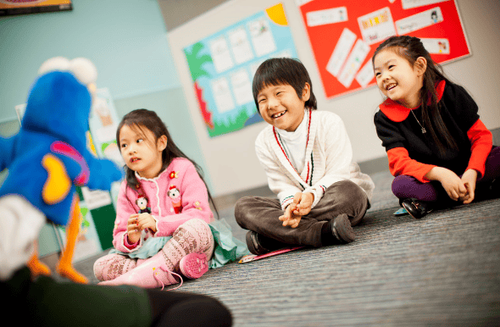This is an automatically translated article.
Article written by Speech Pathologist - Au Thi Hoa, Cell Therapy Center, Department of Regenerative Medicine - Vinmec Times City International General Hospital.
Food is almost the favorite of any of us, especially children. It's not difficult to hear parents commenting, "If you just want to eat something, say it so quickly!". So why don't we think about developing language for children through food. Here are a few simple ways we can think of and apply easily.
1. Create communication opportunities for children
Story 1: Many times we encounter a child crying when he wants a certain food and his family immediately knows what he needs and gives it to him. The story repeats, the child will understand: crying is food, so what needs to be said? Story 2: When hungry, the child opens the cupboard to get milk and cake to eat. In both stories, it is easy to see a common point that children do not need to use words or even language to ask for food and still achieve their goals. The question is what should be done in each of those situations?
With story 1, guide the child to articulate his needs. It could be pointing at a food your child likes, naming a food or saying a complete sentence. It depends on the language ability of each child. Don't ask too hard right away, let's let children get in the habit of expressing their needs. Then, gradually increase the difficulty level for children such as speaking longer sentences, calling names to ask for example.
As for story 2, we can make small changes in the arrangement of utensils such as putting food on top, putting food in a box (make sure the child can't open it by himself). Next is to wait for the child to ask (if not, try ways like story 1) and help the child.

Cha mẹ hãy tạo ra cơ hội giao tiếp cho trẻ khi ăn uống
2. Let the child choose
Besides, let's try to give children choices in eating so that they have the opportunity to express their needs. Instead of saying, "I'm going to eat french fries today," you can ask, "Do you want french fries or hot dog today?". If you can't prepare many different dishes, let your child choose between eating in different bowls, using chopsticks or spoons to eat, choosing a chair to eat, .... It is decided. Determining the food or the way the food will make the child find it much more interesting.
With children already well versed in making food choices, parents can further expand their vocabulary by encouraging children to share why the choice was made. And sometimes we will be surprised with that child's answer.
3. Provide children with new words about food
Learning through food, we have the conditions to provide children with an extremely rich and practical vocabulary. That is the name of the dishes, the shape of the food, the names of the utensils in the kitchen and on the table, the taste of the food, the way to make a dish,...
Another suggestion is you can create mini games anywhere. The game of guessing the name of the dish is simply that the child guesses what he will eat today, which is rectangular, made from beans that his father loves to eat. Or today there will be a family member playing the role of chef / waiter to introduce the dishes in today's meal. Those are just two of many suggestions for you to have fun moments with your family and familiar daily meals.
>>> How to teach children language?

Đồ ăn cung cấp cho trẻ một kho từ vựng phong phú và thiết thực
4. Guide children to help their parents
Do not think that children are too small or clumsy to help their parents. Think about it, in the kitchen and on the dining table there are countless jobs that are suitable for children's abilities. For example, take toothpicks, arrange chairs, wash vegetables, throw away leftovers after eating, etc. Parents also don't forget to give your children compliments and thanks every time they help you. Children learn best through what they see and experience. If we want to teach our children to say thank you, let them see you do it first.
>>> Teach children to be responsible for their actions
In addition, with their efforts, we can sometimes praise them by letting them choose the foods they like. The joy comes from helping parents with housework, nothing more meaningful than that.
Please dial HOTLINE for more information or register for an appointment HERE. Download MyVinmec app to make appointments faster and to manage your bookings easily.













